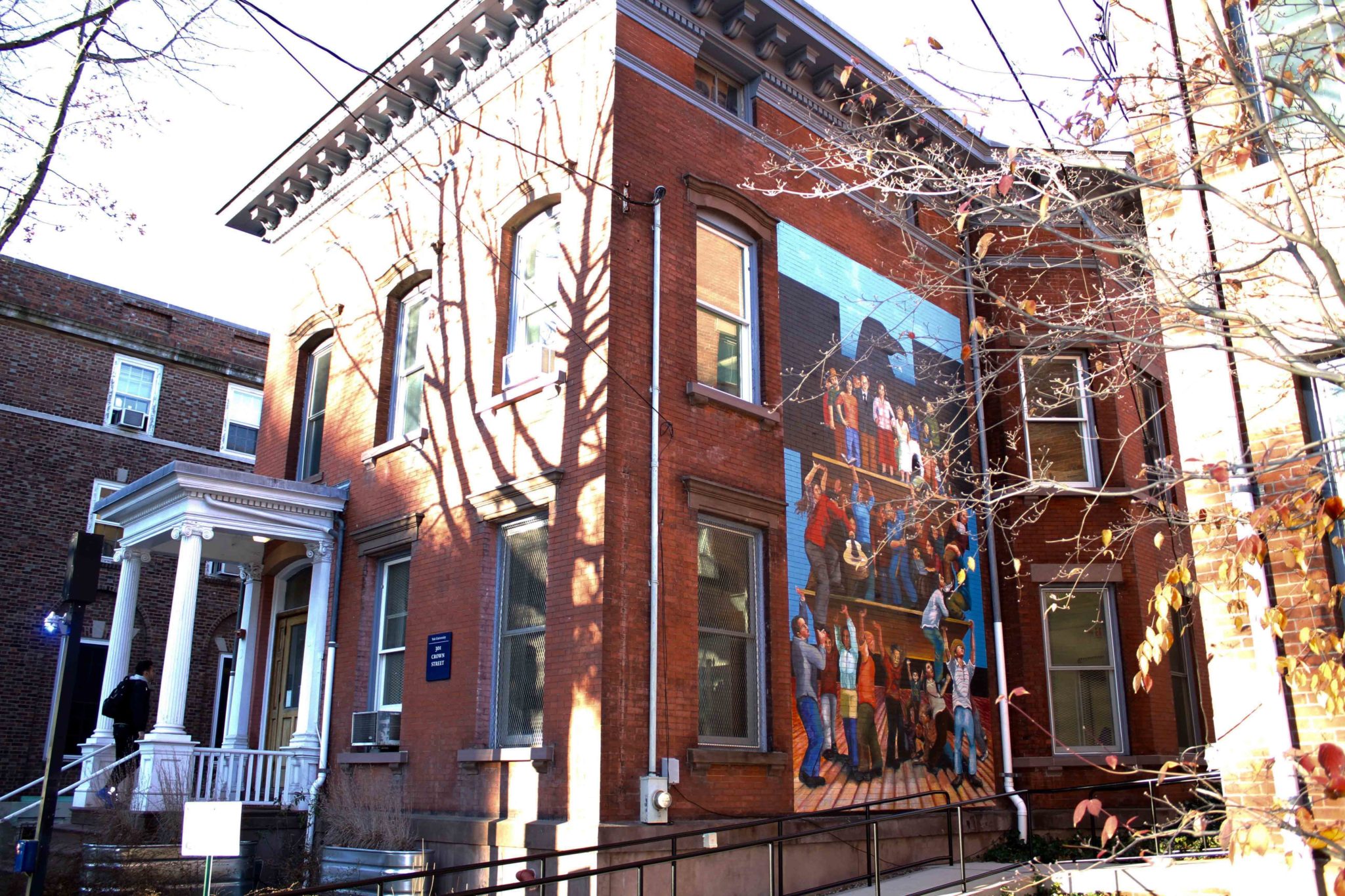
Skakel McCooey
Escaping Tuesday’s rainy night, undergraduates gathered together in the cozy gallery at the La Casa Cultural to brainstorm ways Yale’s campus sexual climate could be improved.
Tuesday’s event — the first student-organized town hall discussion since the results of Association of American Universities’ 2019 Campus Climate Survey on Sexual Assault and Misconduct were released on Oct. 15 — began with a presentation of the survey results. The conversation was facilitated by Director of La Casa Cultural Eileen Galvez and Assistant Director of La Casa Cultural Carolina Dávila. Following Galvez and Dávila’s presentation, students were invited to participate in a more open conversation organized by Verónica Sosa ’21 with the help of student staffers and peer liaisons from the cultural center.
The informal town hall included conversations about sexual assault and harassment at La Casa, as well as the general sexual culture on campus. During this conversation, administrators were asked to leave and student mandatory reporters temporarily suspended their reporting duties in order to create “space for [the] student community to openly share reactions to the survey data, reflections about [their] own community and experiences, and ideas about next steps,” according to an Oct. 28 email announcement to the La Casa community.
“As a whole, I believe we were hoping that the 2019 AAU survey results recently released would show an improvement in the results from 2015 … while there have been areas of improvement, I am saddened to see that we continue to grapple with the stark reality that we have a problem,” Galvez wrote in an email to the News. “As an administrator, I trust that by listening to students and having the willingness to be led by them that we have the potential to have a safer environment for all Yale members.”
The AAU survey data presented at the event focused specifically on Yale’s Latinx community. Galvez and Dávila emphasized that the data presented was based on students who identified as Hispanic or Latino when asked about their ethnicity. Race was not taken into account because each of the four options for reporting race — White, Black, Asian and “Other/multi race” — includes members of the Latinx community, they noted.
According to the AAU data, Latinx students experience sexual assault at higher rates than other communities.
The University-wide survey was administered from Feb. 4 to Mar. 4 of this year and yielded a response rate of 45.4 percent among Yale’s 13,916 students over the age of 18. Of the 12.4 percent of survey respondents who identified as Hispanic or Latino, 15.5 percent reported having experienced sexual assault by force or incapacitation, compared to 12.4 percent of all other respondents who did not identify as Hispanic and Latino who reported the same experience. Following the trend, respondents identifying as Hispanic or Latino reported higher rates of sexual assault by lack of consent than all other students who took the survey — 11 percent and 8.7 percent respectively. Overall, 51.6 percent of Hispanic or Latino students reported having experienced sexually harassing behaviors while at Yale, compared to 48.9 percent of non-Hispanic or Latino respondents.
Sosa said that she was unsure if the results of the survey made her sad or angry, but she did know that they made her want to take action.
“Students were very well aware that sexual assault, harassment and misconduct [occur] on campus, but the numbers are so high,” she said. “Any number is — there shouldn’t be any kind of assault or harassment. We know that people do want to do something about it. People know that it’s a problem that’s affecting themselves, the people close to them or just the community as a whole. We don’t know exactly what the next step is, we don’t know what the answer is, but we know that if we don’t do anything, nothing’s going to change, so something has to be done.”
According to Galvez, Sosa approached her earlier in the semester and asked to help La Casa expand its commitments to bettering overall campus climate with a focus on fostering an environment of student-led efforts. The town hall’s genesis was a desire to create a space where anyone interested in addressing the issue of sexual assault could come together to discuss “culture change with an ethos of healing,” according to the email announcement from La Casa.
During the facilitated discussion, students were generally upset but unsurprised by the results of the survey. Many said they knew that sexual assault was prevalent on most college campuses, but in choosing to come to Yale they had expected the University to do more to foster a healthier climate. Student opinions mirrored survey results that Yale students feel less confident seeking the help of administrators as compared to the AAU aggregate rate.
Still, Galvez said she hoped that students realized that the conversation was just the first step in student-led efforts to change campus climate. She encouraged everyone to continue working together to foster a safer Yale community.
“We will utilize this data to take actionable steps,” Galvez said. “You all have the capacity to make this change for yourselves … I am really glad to have you all here as partners in change.”
La Casa was founded in 1974.
Audrey Steinkamp | audrey.steinkamp@yale.edu







